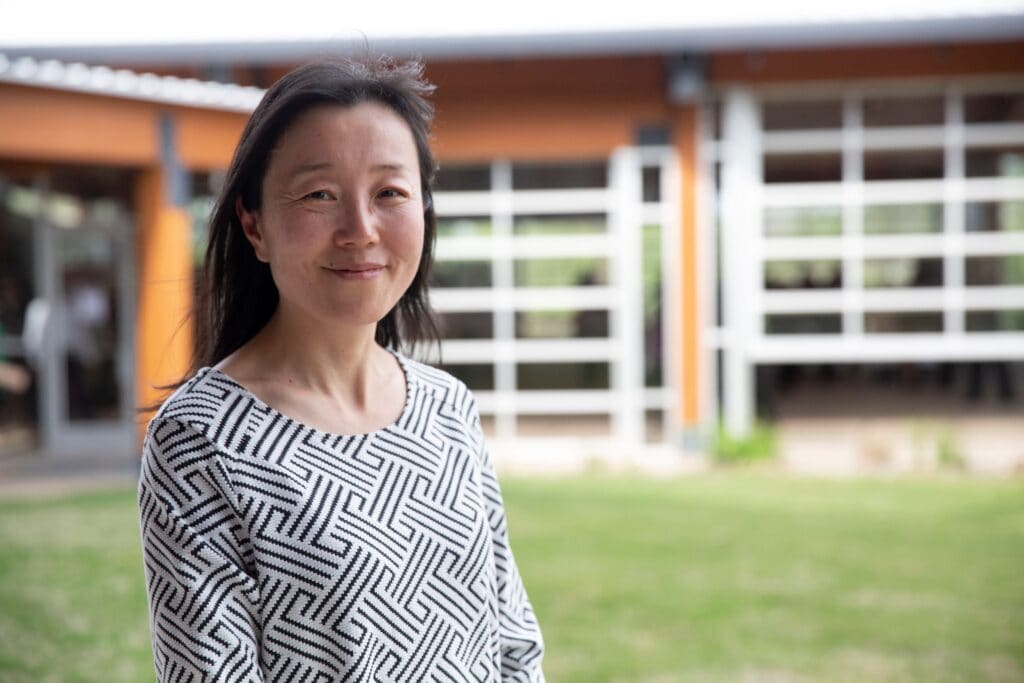
An American Cancer Society grant will support UAMS study of the Affordable Care Act’s (ACA) influence on racial disparities in the use of a common, life-saving treatment for Arkansas breast cancer patients.
The two-year, $222,000 grant is led by Chenghui Li, Ph.D., an associate professor in the College of Pharmacy Division of Pharmaceutical Evaluation and Policy, and an associate member of the UAMS Winthrop P. Rockefeller Cancer Institute Cancer Prevention and Population Services Program. The new study builds on her work previously funded by the National Center for Advancing Translational Sciences (NCATS).
Arkansas is disproportionately affected by breast cancer, especially among Black women. According to Kaiser Family Foundation 2020 estimates, breast cancer mortality rate among Black women in Arkansas is 42% higher than the national average (27.2 per versus 19.1 per 100,000 women). Arkansas’ breast cancer mortality rate for white women is 19.4%.
About 80% of breast cancer patients have estrogen receptor positive tumors, which can be treated with endocrine therapy. The therapy slows or stops tumor growth by blocking estrogen production/binding onto breast cancer cells, reducing the five-year recurrence of breast cancer by 40% and mortality by 33%.
“Findings from this study can provide crucial insights into how the Affordable Care Act may have impacted racial disparities in getting this life-saving treatment for breast cancer,” Li said. “Our findings will have important implications for similar states in the South that have not expanded Medicaid.”
“Dr. Li continues to invest her time and expertise into research that is aligned with the vision of UAMS and will positively impact patients,” said Jacob T Painter, Pharm.D., Ph.D., MBA, associate professor and director of the Division of Pharmaceutical Evaluation and Policy in the College of Pharmacy. “The American Cancer Society grant will enable Dr. Li to further her research of racial disparities in breast cancer treatment, and we expect her findings will reverberate beyond Arkansas.”
The ACA took effect in Arkansas in January 2014, resulting in a decrease of uninsured adults from 23% to 10%. Today it provides health insurance coverage to about 300,000 Arkansans.
While the ACA may have helped reduce racial disparities in the use of endocrine therapy, Li said, the ongoing poor health outcomes for Black breast cancer patients raise questions about other barriers to treatment that she will explore in her research.
Li said her study appears to be the first to assess the ACA’s impact on racial disparities in the use of endocrine therapy and cost sharing — how much breast cancer patients must pay out of pocket.
The study uses a unique data source: the linked Arkansas All-Payer Claims Database and Arkansas Cancer Registry, which combines claims data from all payers in Arkansas with the Cancer Registry.
“With this linked data, we will have access to detailed tumor characteristics that are lacking in claims databases with the benefit of detailed prescription information across both public and private insurers,” Li said. “This presents a unique opportunity for us to systematically examine the impact of the ACA on racial disparity in endocrine therapy use.”
Li’s research is supported by the UAMS Translational Research Institute, which is funded by NCATS at the National Institutes of Health, Clinical and Translational Science Award UL1 TR003107.
A $221,000 supplemental award from NCATS in 2020 enabled Li to provide preliminary findings that supported her American Cancer Society grant application. The NCATS grant is supporting an ongoing analysis of racial disparities in endocrine therapy use among early-stage estrogen-receptor-positive breast cancer patients in relation to cancer recurrence and mortality.
The NCATS-funded study also involves interviewing providers and Black and white breast cancer patients who discontinued endocrine therapy within five years to better understand barriers of endocrine therapy adherence, and their perspectives on any racial disparities. The work received assistance from the Translational Research Institute’s Community Engagement Program.
